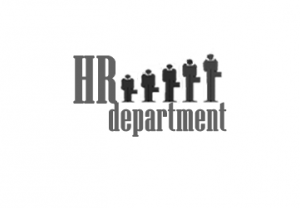 A 2012 study by Kenexa titled, ‘Employee Attitudes and Engagement’, found that human resources departments are consistently out of touch with their company’s workforce in several categories. Today, several startup firms are exploring innovative strategies for mitigating HR problem areas, from initial employee recruitment and training to high retention and workplace satisfaction.
A 2012 study by Kenexa titled, ‘Employee Attitudes and Engagement’, found that human resources departments are consistently out of touch with their company’s workforce in several categories. Today, several startup firms are exploring innovative strategies for mitigating HR problem areas, from initial employee recruitment and training to high retention and workplace satisfaction.
Kenexa surveyed employees and HR professionals nationwide to arrive at their conclusion. In the area of engagement, 69 percent of HR professionals believed their employees were actively interested in their work duties; however, only 34 percent of workers agreed with this claim. The study also found a notable disparity with perceived employee retention; 83 percent of HR professionals thought all the workers would remain with their company for at least one year, but only 41 percent of employees felt the same way. Though there were narrower gaps between HR professionals and employees in the areas of ‘fair benefits’ and ‘adequate compensation’, the findings still revealed a notable discrepancy. And the largest disparity found that, while 81 percent of HR professionals believe their employees would recommend the company to a friend or loved one, only 38 percent of employees said they would. The study notes that, if left unresolved, these differences could spell trouble for any company. “Understanding the gap between employee and HR perception is the key to changing employee messaging to increase engagement and affect the company’s bottom line,” it reads.
The Kenexa study confirms a long-standing suspicion about modern corporate culture: HR departments are disconnected from the needs of their company’s workforce. In order to foster a positive professional environment, HR professionals must communicate with every member of the workforce and strive to accommodate his or her individual needs. During the recruitment process, employees should be instilled with the company’s values and policies in order to initially succeed in their new environment. Every employee should be continuously evaluated, as well as trained on new duties and responsibilities, throughout his/her tenure with the organization. In addition, considerations should be made for employees with specific needs. For instance, flexible schedules should be made available for employees with other important obligations, such as mothers with young children or part-time students.
Today, several startup companies are paving the way for widespread improvement of relationships between HR professionals and their employees. Some of their strategies tackle the initial recruitment and hiring of new talent. The Resumator, for instance, allows hiring officials to post job openings online and then track all of the applicants for any given position. Another company, Jibe, establishes relationships between employees and potential employers via online social networking. Other startups look at ways to improve employee retention and workplace engagement. Vemo allows HR professionals to analyze various employee metrics (turnover, employer reviews, etc.) to determine areas of improvement. Others take a more unconventional approach to building workforce satisfaction, such as Keas, which uses a role-playing game template to lead employees in health and wellness-building activities. TribeHR, has even devised a program that allows HR professionals to build profiles for each employee that feature specific information, such as vacation days and personal goals. And some startups specialize in improving logistical HR responsibilities; one example is Expensify, an online receipt generator that greatly simplifies the process of completing expense reports.
Just as the Kenexa study revealed inherent problems in the current HR framework, startup companies like those listed are working to mitigate these problems using innovative solutions. For any company to succeed, the relationship between employees and HR professionals must remain positive, communicative and mutually respectful.
Julianna Davies is a freelance writer and researcher for a site that recently released the top MBA programs of 2012. When she isn’t writing she is baking, her favorite hobby.